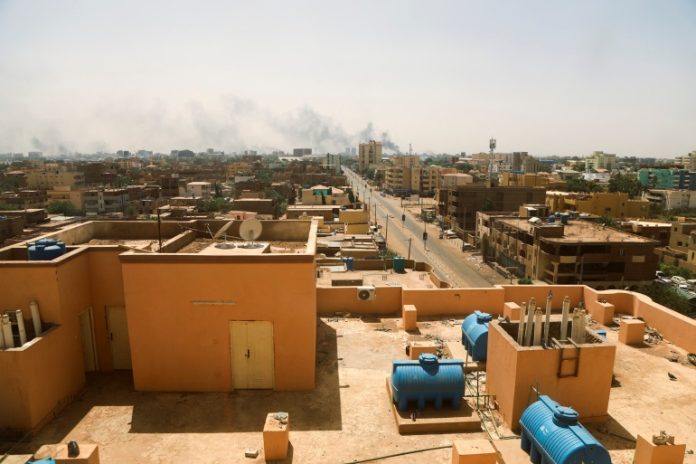Khartoum: When war broke out on Saturday in Sudan’s capital, Khartoum, Yasir Othman anticipated that the clashes would quickly spread to his home in Darfur, a region still recovering from two decades of fighting and massacres.
As the stronghold of the Rapid Support Forces (RSF), a paramilitary group currently locked in an existential battle against the Sudanese army, Othman knew that Darfur would soon be engulfed in conflict, again.
“The war is happening here now and there are a lot of innocent people who have been killed. Hundreds of people here are dead and they haven’t been buried yet,” said Othman, who is from North Darfur’s capital, el-Fasher.
“Both the armed forces and the RSF have casualties, but the RSF has suffered more,” the 39-year-old added.
Othman later told Al Jazeera that three people in his neighbourhood had been killed by a bomb, after which the mobile network in his area cut out.
In South Darfur’s capital, Nyala, local monitors say at least 22 people were killed on the first day of fighting. The violence has since escalated, causing significant civilian casualties. Witnesses told Al Jazeera the army has indiscriminately bombed RSF positions, while the RSF has raided people’s homes, looted markets and engaged in ground battles with army troops.
The bloody incidents have evoked painful memories of the violence that began shaking Darfur in 2003 when mostly non-Arab rebel groups rose against the central Sudanese government decrying the historical neglect that their region had suffered and the continuing exploitation of their resources by Khartoum elites.
The military government at the time decided to outsource fighting this rebellion to Arab tribal militias, a force that ended up committing mass slaughters and numerous human rights abuses in Darfur, according to rights groups.
The resulting conflict crushed the rebellion, but at a terrible human cost. Between 2003 and 2009, more than 300,000 people died in armed combat – most in the first two years – and subsequently from hunger and preventable diseases, which spread rapidly due to the destruction of infrastructure in the war.
In 2013, many of the Arab tribal militias were repackaged into the RSF by former President Omar al-Bashir, who hoped they would protect him against all threats to his rule. The RSF’s leader, Mohamad Hamdan “Hemedti” Dagalo, was given his own chain of command, separate from the military. “The RSF is the son of the army,” said Othman, with resignation.
Over the years, Hemedti has grown rich and powerful in his own right, by capturing gold mines and leasing out fighters to the Saudi-led coalition in Yemen.
And now, the RSF is squaring off in Darfur against the army that was its parent.
The humanitarian situation could deteriorate quickly in Darfur if the international community does not monitor the situation closely. Beyond local monitors, no international mission exists to document abuses. The last one was the joint United Nations-African Union peacekeeping mission, UNAMID, but its mandate expired at the end of 2020.
The urgent need for monitoring became glaringly obvious after the military and RSF spearheaded an October 2021 coup to upend Sudan’s transition to democracy. In the months that followed, “armed Arab assailants” perpetrated the worst violence against civilians that West Darfur had seen in years, prompting little condemnation or concern from the putschists. –Agencies




